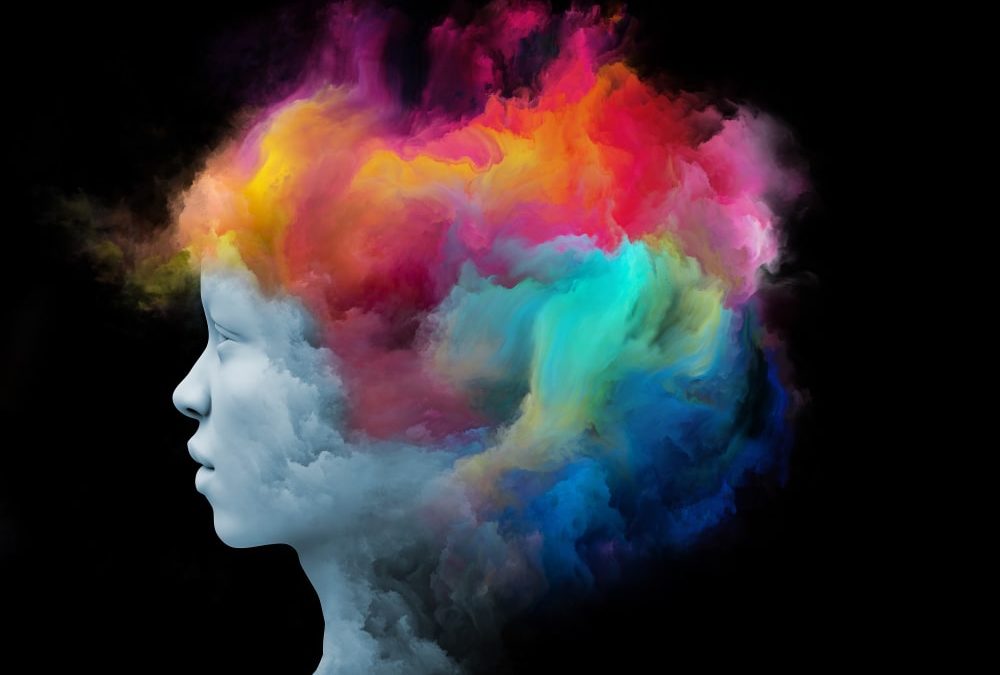This is part two of a two-part series on overcoming brain fog.
Forget the name of your child’s teacher again? Stumped by what you actually need to buy at the grocery store because you left the list at home? If you suffer from brain fog, you know that it can touch almost every aspect of your life — it can lead to an inability to articulate your thoughts clearly and make your job, household chores and caring for your loved ones more difficult than ever before. While the phenomenon of a COVID-19-induced lack of clarity has recently shed a spotlight on the topic, there are a number of other causes, symptoms and cures for brain fog.

Brain health is not only critical to mental capacity but is also paramount to emotional wellbeing, says Sameera Sullivan, a relationship expert with a background in psychology who runs Sameera Sullivan Matchmakers. Because of this, it’s vital to address brain fog symptoms from the get-go.
“Your feelings and your thoughts are intimately connected and to feel good, you have to think good,” says Sullivan.
What is Brain Fog?
Brain fog refers to a psychological state where a person experiences a lack of clarity and understanding about the various happenings going on around them. Sometimes, it is also known as mental clouding, says Certified Psychiatrist Nereida Gonzalez-Berrios, MD.
Is Brain Fog related to ADHD?
ADHD is a health condition, one of many, that can cause brain fog. It is common for the symptoms of ADHD to be the same as brain fog symptoms, according to healthline. For instance, ADHD can disturb sleep which further exacerbates a feeling of mental haze.
Meanwhile, some of the medication used to treat ADHD symptoms can also cause brain fog.
According to Healthline, these side effects can include: exhaustion, daytime drowsiness, feelings of being sedated and more.
To combat these and improve focus, without ADHD medication, consider brain training tech like neurofeedback through the Narbis smart glasses. (affiliate link) Over time, Narbis users’ brains get trained to pay attention during tasks that require focus, whether it’s answering emails, or getting through a pitch deck, or copywriting for your website.
You should consider consulting a medical professional if you believe your brain fog symptoms are related to an underlying mental disorder or illness.

So, what are Symptoms of Brain Fog?
The typical symptoms of brain fog, according to Gonzalez-Berrios are as follows:
- Confusion and lack of mental clarity
- Overall forgetfulness
- Lack of problem-solving abilities
- Issues with thinking and assigning a logical meaning to happenings
- Issues with language, concept formation, and creativity
- Low attention span may get distracted quite often
- Feelings of apathy
- Faulty memory consolidation
- Motivation to try out doing new things is lacking or not present at all
What Causes Brain Fog?
It is not uncommon for individuals suffering from brain fog to have a history of physical or mental illness, says Gonzalez-Berrios.
Brain fog can also be a symptom of a nutrient deficiency, sleep disorders, bacterial overgrowth from overconsumption of sugar, or even a thyroid condition. Hormonal changes, impaired sleep, diet deficiencies, food sensitivities, and stress are some of the other usual causes, Sullivan says.
It is important to seek treatment if brain fog is causing repeated forgetfulness, poor attention, and sluggish thinking, and the condition is interfering with an individual’s daily functioning, says Gonzalez-Berrios.

How to Treat Brain Fog
She suggests the following treatment options:
- Reduce your association with electronic gadgets – blue light emitted from electronics such as computers or mobile phones blocks a hormone called melatonin that makes you sleepy which can lead to a less restful night’s sleep and subsequent brain fog.
- Take breaks – when you feel mentally tired, periodic short breaks from work where you engage in enjoyable activities can help overcome mental fatigue.
- Stay connected to friends and family – ask loved ones to give you cues if you seem to forget things in daily life. It’s important to engage socially with support groups and learn from others who have learned to overcome their brain fog symptoms
- Change your diet – stop alcohol, drugs, and smoking, all of which have harmful health consequences. Get plenty of omega-3 fatty acids (for their anti-inflammatory powers), and boost your body’s natural energy production and regeneration with essential vitamins and minerals.
Parting Thoughts
While struggling with symptoms of brain fog can feel debilitating, knowing what is causing your lack of mental clarity is a first step in treating the issue. Observing the activities listed above can help identify causes and help overcome mental haze.

